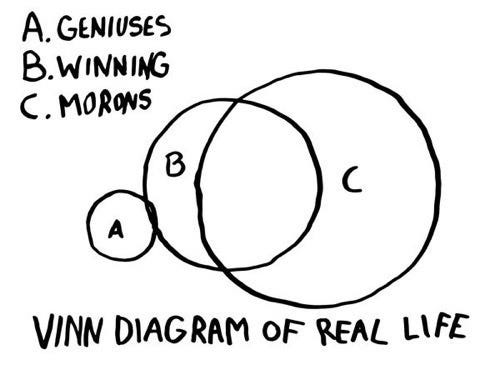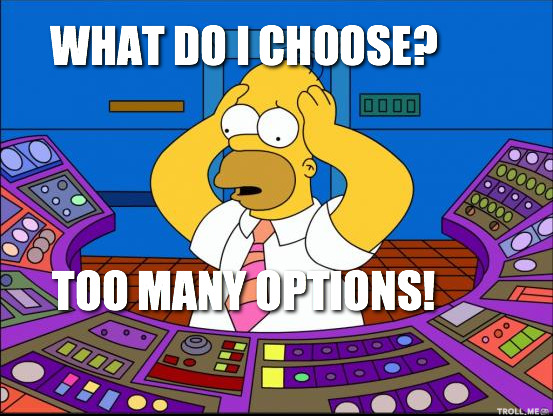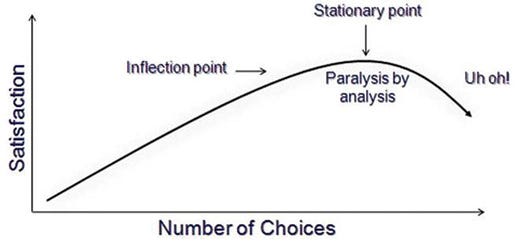
Featured Blog | This community-written post highlights the best of what the game industry has to offer. Read more like it on the Game Developer Blogs or learn how to Submit Your Own Blog Post
Climbing an impossible mountain: the struggles of making a game alone
An in-depth look into the emotional challenges of making a game by yourself. Using the game Hang Line as a case study, this article gives suggestions of how to make it through hard times as a solo developer and how to find the motivation to finish.

.png/?width=646&auto=webp&quality=80&disable=upscale)
Making videogames is hard. Making a game by yourself is even harder.
But when most people hear this, they think hard means technically difficult, artistically challenging, hard to stand out etc. All of that is true, but one of the hardest things that people don’t really consider is the loneliness and emotional strain of surviving this journey by yourself.
This article is for developers that are considering embarking on their own solo journey and also for those that are in the thick of it and struggling to ship their first solo project.
Taking the Leap by yourself
Have you ever stood at the edge of a steep drop and hesitated about jumping into the water below? Notice how in this situation, people almost always decide to jump in together? One of the hardest things about making a game alone is taking that initial leap by yourself.
 Holding hands is to avoid the smart arse who pretends to jump then chickens out at the last moment
Holding hands is to avoid the smart arse who pretends to jump then chickens out at the last moment
It took a long long time for me to decide to start my own project. I had a lot of doubts. Most of my career was spent as a designer so the biggest worry was all the other disciplines I’d have to take on. Could I handle the programming? Could I make good looking art? Could I build something in time?
One article that helped push me over the edge was Fake Grimlock Win Like Stupid.
The following image from that article sums it up pretty well:

Venn diagram of how to win in life. The full article is well worth a read.
Basically to have the courage to take the first step you have act stupid, in the sense that you have to not let your brain think of all the reasons your idea won't work and instead just go for it.
When I finally took the decision to quit my job in San Francisco and move back to Europe to start on my own game, my initial plan was quite simple. Make a small mobile game within 3-6 months, make a lot of mistakes, learn from them and give it another go. The idea being that the second time round I’d be faster and better and have a much greater chance at success.
Sounds great in theory right? In practice I’ve spent so long on my first game Hang Line that I haven’t even executed on this plan! But more on that later.
So once you’ve finally taken the leap, the next challenge is deciding on a concept. The awesome thing is that you can literally choose anything because the only person who needs to input into this decision is you. Unfortunately this makes it an absolutely terrifying choice! This brings us neatly to the next challenge in making a game alone.
Choice Paralysis

Most days during development I feel like Homer
When you’re working in a team, you rarely make a decision entirely by yourself, especially as a designer. Almost everyone in the team generally has an opinion and if you have a senior position, your job is usually to take those opinions and find a great compromise. As a lead, you’re generally steering your own decisions based upon trusted feedback from your peers.
When you’re by yourself, you don’t have team members to ask for feedback or point out what you’re doing wrong... You have no one. The responsibility is now entirely on you.
This can make it extremely hard to make decisions, and arguably the most important of all is WHAT GAME SHOULD I EVEN MAKE?! Faced with infinite possibilities can be utterly paralyzing.

I thought I should include at least one graph in this article to make it look like I know what I'm talking about
One thing I did very early on to help with this was set up a kind of support group. Basically a Slack channel with a few friends that were also doing or had done their own indie projects. We post questions/articles/feedback etc and have a chat on Google hangout once a week. This support group was instrumental in helping me narrow down on a concept, so I didn’t have to entirely trust my own instincts.
One thing I should mention - for the sake of your sanity, please please please pick a concept that you’re truly passionate about! Sure you probably want to make sure it’s financially viable in the market, and it’s something technically achievable etc, but making is a game is friggin crazy hard! Later down the line you’re going to be tired, bored and seriously lacking in motivation. Being energized by working on the coolest thing you can possibly think of is really going to help keep you focussed.
I’d always been interested in climbing and I had an interesting idea for a grappling hook control system, so I started prototyping a game about extreme mountain climbing.

It may look basic but you have to start somewhere!
A month or so in, one of the first things I learnt was working by yourself without a team is super lonely.
Loneliness

Solo game dev can be as lonely as this, but without the awesome views.
There’s several aspects that impact how alone you feel when working on a project:
Not working together with other people towards a common goal.
Physically being alone in the place that you’re working.
Being alone after your work day is over.
Simply not having other team members means there is zero camaraderie or motivation that you would normally get from being invested in a project with others.
If you’re working from home then you are generally going to be alone during the day. When I decided to start my project I actually moved to a new city, mostly to save money. This meant it took time to build up a social life, so there were times where I was literally at home by myself the entire day, sometimes several days in a row! I was going a little crazy. To help with this I made sure to plan my week so that I would get out the house to meet up with other people at least once every day.
I also started to going to a co-working meetup. This is where you sit and work in a room full of random people. I didn’t want to spend the money on renting a full co-working space, but I found a bunch of co-working groups on meetup.com that were free and simply use cafes to work from.

I go to this place once a week just to stop myself going insane
Weirdly enough, you also have a greater sense of motivation to get on with work when there’s people around you, even if they have absolutely zero investment in what you’re doing! And as far as motivation goes, you’re going to need all you can get.
Lack of Motivation
Not working in a team has a huge impact on motivation. And when you’re working by yourself, there is no one there to tell you off for watching cat videos on youtube. Something I found extremely helpful was using a website called Toggl. This was recommended to me by Ryan Darcey, who also has an awesome blog explaining Toggl and more here: Making Moves.
 Toggl - officially the best way to guilt yourself into working more hours
Toggl - officially the best way to guilt yourself into working more hours
Toggl in its simplest form is a timer that you switch on when you start working and you turn off when you stop, then you write a description of what you did. This creates a sense of needing to keep focused on work whilst the timer is running.
Aside from distractions and moment to moment motivation, there is also your overall satisfaction of working on a project. When making a game, some of the tasks will be fun and creative, others will be boring and crappy. It doesn’t matter – if you’re by yourself you’re doing them ALL. You will experience periods of low motivation and you won’t have a team to pick you up again.
A few months in when my motivation was dropping a bit, something I found super helpful in giving me a boost was getting the game in front of people. Clearly this is super helpful just to get fresh eyes feedback, but it’s also incredibly motivating to watch someone actually enjoying something you made.
 Even my Dad has played Hang Line and he's 84!!!
Even my Dad has played Hang Line and he's 84!!!
I should note that at this point the game looked like this:

Swing about, avoid the red things or you die. That was all I had at this point.
I.e. complete ass. That doesn’t matter. Don’t be shy. If there’s something to play, let people play it. People won’t have the same perspective as you. Believe it or not, at this stage there were people who played it that asked me where they could download the game – at this point it only had a friggin cube as the player character!!
I also joined an indie developer group in my local area so I could watch other people play aside from friends and family, which is helpful for getting some less biased feedback.
At this point my motivation was pretty good, but I was starting to worry about money a lot...
Anxiety
When you working for a company, your project is likely to have a deadline. But if the team misses that deadline, usually you still get a paycheck and things continue. When you’re working on a game by yourself, the saving pot you put aside for your living expenses is basically your deadline. Once it’s dried up, that’s it. This means time and money are constantly on your mind even outside of work.
Decisions like should you go on a trip with your friends? Should you buy a new tv? Should you get a beer instead of a fancy cocktail? Depending on what type of a person you are, it can get very micro very quickly. I found myself stressing about a lot of little decisions simply because I wasn’t used to surviving off my savings.

Worry about money too much and you really will be eating instant noodles every day
The best cure for this I found was to do a little bit of planning and assign a reasonable weekly budget to myself based on the overall savings I’d put aside for the project and how long I wanted to spend on it. That way the money is kind of ‘already spent’ so it sort of forces you to not stress so much about small spending decisions. Also, I’m sure you’ve heard this a thousand times but I’m reiterating it because it’s so important – don’t budget for the project, budget for 2X the project. I budgeted for making 2 games and just a single game occupied all my time.
After I’d done some budgeting and planning, I started to crack on with the project with a decent amount of progress. Pretty soon I had the core gameplay feeling pretty good and I was starting to move away from prototyping into production.

Still doesn't look wonderful but at least I replaced the cube!
But round about this point, I started to get into the really hard tasks that take ages. It’s the age old saying that the last 20% of progress is 80% of the work. The thing is, as you’re prototyping and throwing things together, it feels like the game is really moving forward. But as you start to move to the tasks like putting in shippable art, making gameplay systems that won’t collapse on shipping – you start to move to what feels like snail pace. I started to find myself beginning to doubt whether I could actually make the game in time...
Self doubt
If there is one word I never want to read again it’s "Indiepocalypse".

Apparently we're all doomed, which is really helpful to know when you're working your ass off trying to finish your first game solo
Every single damn week there is some article about dwindling steam sales, failed kickstarters, zillions of games being released every week on mobile, impossible discoverability problems… As if it wasn’t hard enough making a great game, the last thing you want is to read about how what you’re doing is completely pointless and you have no hope of succeeding!
One thing I noticed with making a game by myself is that it sort of feels like what you’re working on isn’t actually real. I still had a lot of technical things to figure out that I just didn’t know if I’d be able to solve like getting the game’s performance on mobile good enough, generating the level art quick enough etc. I had this feeling that I could just get completely stuck and literally not be able to finish the game in time. And even more depressing, it felt like if this did happen, no one would notice and no one would care because it was just me in a room programming away by myself. The game didn’t exist in any other reality.
Instability
When you’re working in a normal job, you have a lot of factors that affect your mood - how well you’re getting on with your co-workers, whether your boss offered some praise, whether the company decided to roll out a new bonus scheme etc. When you’re by yourself, all you have is the game and how well it is going. That’s it. So if it feels like it isn’t going that well, this really gets you down.
 I hear that including a picture of a cat will increase the readers of any article by 500%
I hear that including a picture of a cat will increase the readers of any article by 500%
I found that my mood and general happiness/satisfaction would be hugely affected by what I was working on that day and how it was going. This made me very up and down. I found the best way to deal with this was to try and ensure my life outside of work was balancing things out a bit. I started going to a creative writing group which I found a great distraction and gave me something else to think about.
Despite this, about two thirds through the project I was really starting to get worried about where I was headed as I had already spent more time than I wanted to.
Fear of Failure
I’d originally planned on spending 3-6 months on the game and it was clear that about 9 months in that I still had a lot of work to get it done. The problem was that my goals and expectations had shifted. I’d now invested more money into the game because I’d worked on it for longer, so instead of thinking of it as a first-try-get-my-feet-wet sort of thing to learn from, it was now something that I was hoping and sort of expecting I would actually make some money from. And if it failed, I was going to a be a heck of a lot more upset.
I’d basically put a much a much bigger bet onto the gambling table, which of course could score a bigger reward, but it was still with the same terrifying odds. And I don’t even like gambling in the first place!
 Dedicating a portion of your savings to making a video game is basically gambling
Dedicating a portion of your savings to making a video game is basically gambling
At this point the project was moving really slow. Once you’ve worked on a project for a year, the codebase gets so big that anything you add, no matter how simple, has the potential to affect so many other systems. Even just remembering how a piece of code works that you wrote almost a year ago can be super difficult. This is why its so important to document your code – sometimes I read comments that I don’t even remember writing and it’s like some Marty McFly past version of myself is telling me about the future...
One thing that can help you pull through when things are going tough is looking back at old screenshots and videos. If you save off a screenshot or video to a folder whenever you add anything new to the game, eventually you’ll have a visual timeline of the entire game. Looking back at this and seeing how much the game has moved on is always going to make you feel much better about how far you’ve come.
 When you take a trip back in time the progress you'll see is incredible
When you take a trip back in time the progress you'll see is incredible
Conclusion
So this is an unfinished story. I’ve now been working on my game Hang Line for about a year and it’s still not done. But recently my motivation had a huge bump. I finally started to do some PR and share the game on twitter, facebook etc. I made a trailer and it received a huge amount of press and this had a massive impact on me. It made the game feel like a real thing that people were actually excited to play.
So the last thing I’d recommend is to share what you’re working on with the rest of the world as early as you can. Getting random people to validate what you’re doing is HUGE.
Also, don’t just think about this from a PR perspective. Get in touch with other developers. There’s some great groups on facebook like the Indie Game Dev Group where people provide honest and helpful feedback. But also don’t be afraid to get in touch with developers out of the blue that have shipped similar games, just to ask for advice or suggestions. I have had nothing but positive experiences with this. People that I didn’t previously know really have gone out the way to help and it’s made a huge difference both to the game and to my motivation.
If you want to see where I’m up to, here’s the trailer that I posted recently:
And if you want to find out how this story ends, please sign up to the newsletter on my website: www.hanglinegame.com
Making a game by yourself is extremely tough. If you’re thinking of embarking on this journey, I hope that this article makes some of the difficulties clear. If you’re part way through making a game then I hope that some of this was of use to you and please – hang in there! Whatever you do, get it finished and learn from the experience.
Good Luck!
Follow me on twitter: @edform
Read more about:
Featured BlogsAbout the Author(s)
You May Also Like







.jpeg?width=700&auto=webp&quality=80&disable=upscale)








